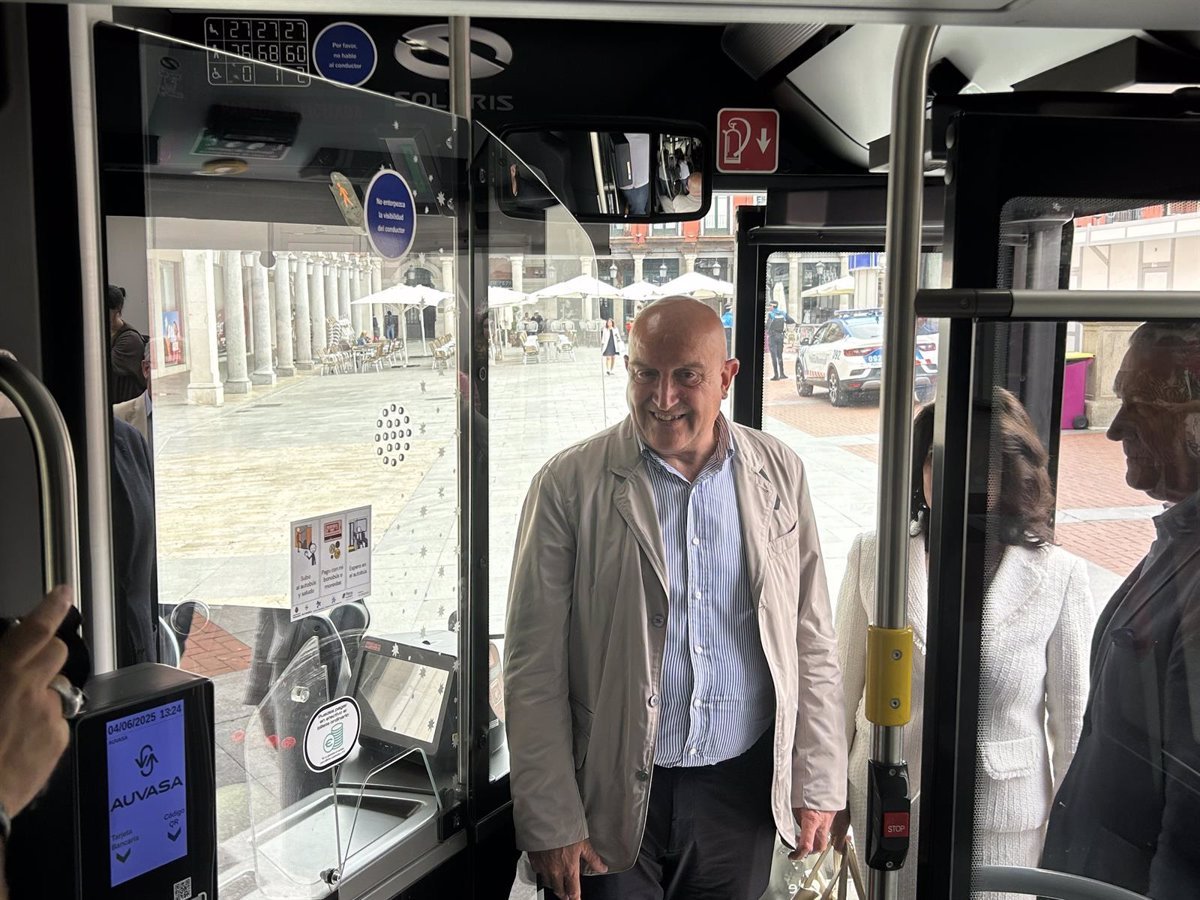The initiative responds to an agreement signed by the City Council with the Autism and Plena Inclusión Foundation.
The buses of the public company Auvasa incorporate a series of specific measures in passenger transportation to facilitate cognitive accessibility for people with autism spectrum disorders (ASD) and other disabilities.
The project was presented on Wednesday at a press conference attended by the Mayor of the City, Jesús Julio Carnero; the Councilor for Seniors, Family, and Social Services, Rodrigo Nieto; the manager of Auvasa, Eduardo Cabanillas; and representatives from Autismo Valladolid, Conchi Galván; Autismo Castilla y León, Carmen Calvo; and Plena Inclusión, Juan Pablo Torres.
Cognitive accessibility «aims to make the world easier to understand and is designed, above all, for people with intellectual disabilities or autism, but it makes life easier for everyone: children, seniors, the elderly, and/or people from other countries who speak a different language.»
The city’s mayor has argued that projects like this are in line with the Government’s idea of promoting «coexistence mobility.» «Only if we are capable of promoting public transportation in all circumstances can we guarantee it,» he emphasized.
Auvasa’s cognitive accessibility project is carried out in three areas of action, focusing on the people who want to use the bus and those involved in providing the service.
Guides have been developed using pictograms, taking into account measures that allow for anticipating the recognition of environments and the operation of urban transportation, using a simple and intuitive language, with pictographic elements and avoiding over-information.
These pictograms help facilitate communication and cognitive accessibility for all people who, due to various factors (autism, intellectual disabilities, language unfamiliarity, seniors, etc.), face difficulties that hinder their inclusion in any area of daily life.
These pictogram guides will be available on all buses in the fleet and at the main urban bus stops in the city, providing information to service users that covers the entire travel cycle, from stops, vehicle access, ticket payment, the journey itself, arrival at the destination, and exiting the bus.
The pictograms will be installed at 600 stops, 300 shelters, and the 153 buses in the fleet, and as highlighted by both Carnero and representatives of third-sector associations, they will help not only people with autism but also other citizens with cognitive disabilities and the rest of the Valladolid population.
PROFESSIONAL TRAINING
In this sense, training and awareness-raising actions are being carried out for Auvasa’s movement area staff, to better understand the needs and challenges faced by people with autism spectrum disorders (ASD) or intellectual disabilities and to provide a more inclusive and accessible service.
All workers will be informed about the mobility guide for people with ASD and intellectual disabilities for professionals, developed in collaboration with the entities participating in the project, as well as online training available for movement personnel.
In order for potential users of urban transportation with ASD or intellectual disabilities and their families to have a direct first contact with the vehicle and to understand the different steps of the travel cycle, as well as to establish proactive action mechanisms in case any issues related to service provision arise, travel practice sessions will be held at Auvasa facilities, coordinated by the Autism Valladolid Association and Plena Inclusión, with the presence of technical staff from AUVASA and these associations.
These entities have expressed their satisfaction with the municipal initiative, as exemplified by Carmen Calvo, the president of Autismo Castilla y León, who expressed her desire for the initiative to expand to other areas of the community. «May this be the beginning of accessible public transportation in Castilla y León, so that all people with autism can enjoy this right,» she emphasized.
In this regard, Conchi Galván highlighted that people with autism will not only have cognitive accessibility but also emotional stability on the buses.
On the other hand, Juan Pablo Torres from Plena Inclusión emphasized that with this initiative, progress is being made towards having a public transportation system that «leaves no one behind» and encouraged continued collaboration to ensure that all people have equal opportunities.

